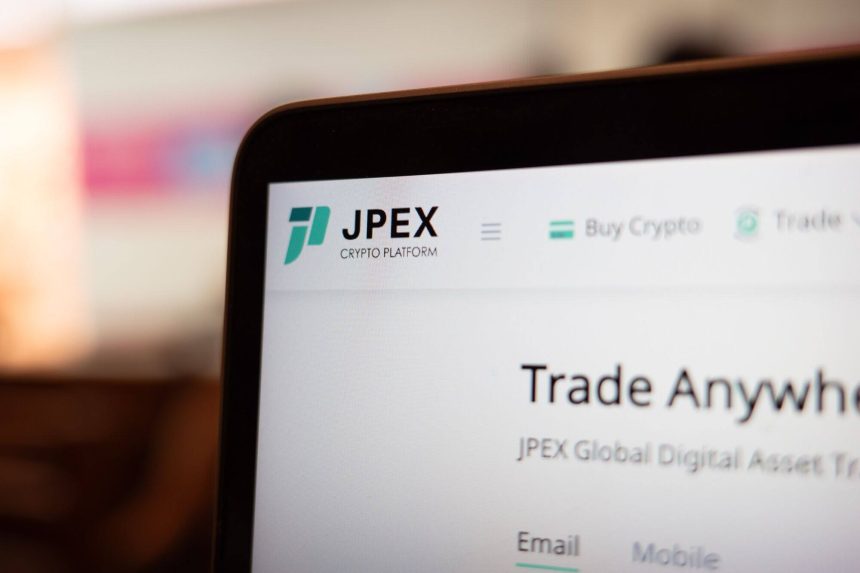The website of cryptocurrency exchange JPEX, currently facing a police investigation, became inaccessible under some Hong Kong telecom service providers since Wednesday evening, while the embattled trader floated a new dividends plan for its investors. A Post check found that the site could not be reached through CSL, 1010, Netvigator, SmarTone, Birdie and HKBN. JPEX on Wednesday night accused the Securities and Futures Commission of asking internet service providers in the city to “unreasonably” block its mobile app and official website, while advising users to obtain a VPN to access the site. The growing cryptocurrency scandal centred on JPEX involving HK$1.3 billion (US$166 million) in assets, the single largest financial fraud case in Hong Kong’s history, has exposed vulnerabilities in the city’s ability to balance investor protection with its ambition to keep up with the fast-growing world of fintech. Police also arrested three more suspects, aged 25 to 32, on charges of conspiracy to defraud, bringing the total number of people detained in connection with the case to 11. But the beleaguered platform has remained defiant despite the high-profile police probe. It floated a new “DAO Stakeholders Dividend Plan” on Wednesday night. Hong Kong’s MTR Corp removes JPEX online ad as criticism mounts DAO stands for decentralised autonomous organisation – an entity with no central authority in which all members participate in decision-making through voting on blockchain. Platform users will vote on whether to implement the proposed plan in a referendum on Thursday. The plan would allow members to exchange their assets currently stored on the cryptocurrency service for DAO shareholder dividends at a 1:1 ratio, with the ability to claim them after two years. JPEX claimed that new users who signed up under the plan could get twice the payout. The securities commission on Wednesday also issued a statement condemning the trading venue’s move to publicise confidential correspondence with the regulator. It warned JPEX that it had breached the secrecy and confidentiality provisions of the Securities and Futures Ordinance and the Anti-Money Laundering and Counter-Terrorist Financing Ordinance. The commission launched a new licensing regime for virtual asset trading platforms in June, mandating that exchanges servicing retail customers apply for and receive approval within a one-year grace period. On Wednesday, it accused JPEX of ignoring rules under the regime and reiterated that the platform had never made contact with the regulator regarding potential authorisation. Hong Kong arrests 6 people in fraud investigations linked to JPEX The fallout has sparked complaints among lawmakers and industry players who said regulatory frameworks to reign in the cryptocurrency sector came too late. Lawmaker and solicitor Doreen Kong Yuk-foon said the JPEX incident had given the public an impression that authorities were unsynchronised in their actions. “Police have made high-profile arrests while the company continues to issue statements reassuring their users about their credibility,” she told a radio programme on Thursday. “Can police state whether the company or platform is unlawful? Individual telecom service providers have blocked access to the website, but it’s too late. It’s not a good look as it seems each department is acting on their own.” She also pointed to the loopholes in advertising laws for such trading platforms and questioned whether influencers who promoted the platform should have legal responsibility for the risks involved. Emil Chan, co-chairman of the Hong Kong Digital Finance Association, said the government should have set up regulatory frameworks for the cryptocurrency industry two to three years ago when it began growing in the city. With nine months left in the one-year grace period for trading platforms to apply for a license, Chan urged authorities to take action to prevent the 100 unlicensed cryptocurrency platforms in the city from making false claims. “Authorities should reveal to the public which companies are in the process of applying for a license during the grace period, as this is a loophole,” he said.



